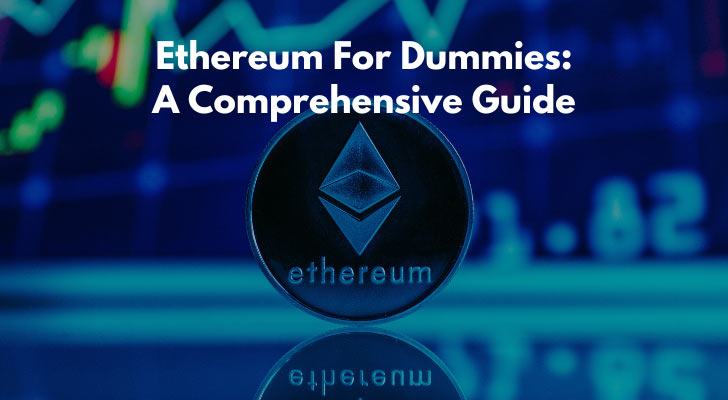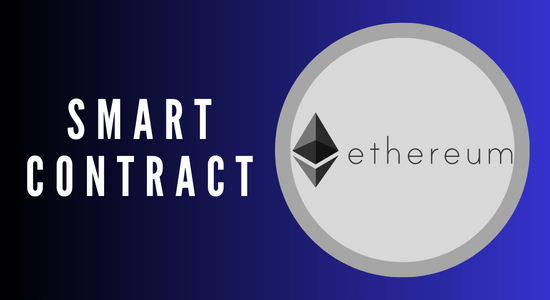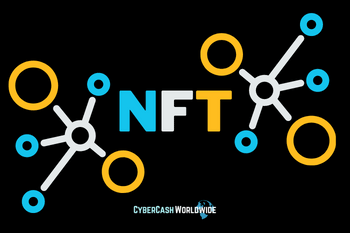Even if you're new to the cryptocurrency space, you may have heard about Ethereum, which may not be as well-known as Bitcoin. But Ethereum may be so much more than you think.
They say Ethereum is an "open-source blockchain-based platform that enables developers to create decentralized applications (dApps) using smart contracts." I've no idea what the hell it means. These stupid jargons throw me into the humongous shark-infested ocean. So let's take a closer look at what makes Ethereum unique, how it works, and whether it's worth buying for us non-techies.

What is Ethereum?
When people mention Ethereum, first of all, they are referring to either of the 2 meanings; Ethereum as a digital platform and Ethereum as a cryptocurrency.
The Ethereum platform is a computing platform that allows developers to build and run applications known as "dApps." These dApps can use the Ethereum blockchain to store and process data, as well as to execute smart contracts.
So Ethereum is a platform, but at the same time, Ether (ETH) is the native cryptocurrency of the Ethereum platform. Ether is used to pay for transaction fees on the network, as well as to incentivize validators to participate in the network and to execute smart contracts.
What does it mean by "smart contracts"? I'll come back to this one.
So while Ethereum is primarily known for its platform, the Ethereum cryptocurrency, Ether, is an integral part of how the platform operates.
Did You Know?
- Launch Date: Ethereum was officially launched on July 30, 2015.
- Market Capitalization: As of early 2023, Ethereum's market cap was over $200 billion.
- Number of Transactions: Ethereum processes over 1 million transactions daily.
- Smart Contracts: Over 3 million smart contracts are deployed on Ethereum.
- Ethereum 2.0 Staking: More than 10 million ETH have been staked in the Ethereum 2.0 deposit contract.
- Active Addresses: Ethereum has over 150 million unique addresses.
- Decentralized Applications (DApps): Over 2,800 DApps are running on the Ethereum network.
"Decentralized"
The Ethereum platform is decentralized, meaning it's a digital system that is not controlled by any single person or entity, but rather by a network of participants.
In a centralized system, such as a traditional bank or a social media platform, there is a single entity that controls and manages the system. This entity has the power to make decisions about how the system operates, what rules to enforce, and who can access the system.
In contrast, a decentralized platform operates on a network of computers and nodes that are spread out across the world. There is no central authority that controls the platform, but rather a network of participants who work together to maintain and validate the system.
This decentralization has a number of benefits, such as;
- It makes the platform more resistant to censorship and manipulation, as there is no single entity that can control or shut down the system.
- It also makes the platform more transparent and open, as anyone can participate in the network and see the transactions and data stored on the blockchain.
In the case of Ethereum, this decentralization allows developers to build and run decentralized applications that can operate independently of any single entity. These applications can be more secure, more transparent, and more resilient than centralized alternatives.
"That's it, darling, your 'rules' again! I just cannot take it anymore! I wish you were Ethereum. No one boss tells it what to do, everyone has a copy of the 'rules,' so it keeps running smoothly even if a selfish jerk like you do something to it.
I'm sorry, but it's over. We are over! I'm going to a happy decentralized world where programmers make cool apps that are safe, open like an open book, so stupid people like you can never shut them down!"
Did You Know?
- Daily Active Users for DApps: Ethereum DApps have more than 100,000 daily active users.
- Average Transaction Fee: As of early 2023, the average transaction fee on Ethereum was approximately $5.
- Network Hash Rate: Ethereum’s network hash rate reached an all-time high of over 1 petahash per second (PH/s).
- NFT Sales: Ethereum hosts the majority of NFT sales, with billions of dollars in transactions.
- Decentralized Finance (DeFi): Over $100 billion is locked in Ethereum-based DeFi projects.
- Ethereum Improvement Proposals (EIPs): More than 400 EIPs have been proposed for Ethereum’s development.
- Gas Usage: Ethereum’s total gas used daily regularly exceeds 100 billion gas.
What Does a "Smart Contract" Mean?

A smart contract is like a digital agreement that automatically enforces itself when certain conditions are met.
For example, imagine you and a friend are betting on the outcome of a sports game. You both agree to put some money into a smart contract that will automatically pay out to the winner based on the outcome of the game.
When the game ends, the smart contract checks the outcome and automatically sends the money to the winner. This happens without the need for a middleman, such as a betting site or a bank, to oversee the transaction.
Smart contracts can be used for many other types of transactions as well, such as buying and selling goods or services or transferring ownership of assets. They are useful because they can save time and money, reduce the risk of fraud, and make transactions more transparent and trustworthy.
What Can I Do With Ethereum?
Developers create decentralized applications or execute smart contracts, but even for us, there are still many things that you can do with Ethereum. Here are a few examples:
Use decentralized applications:
There are many decentralized applications (dApps) built on the Ethereum platform that you can use, such as digital wallets, games, and social networks. These applications often offer unique features that are not available on traditional centralized platforms.
Buy and sell Ether:
Ether (ETH) is the native cryptocurrency of the Ethereum platform, and it can be bought and sold on cryptocurrency exchanges. You can use Ether to send and receive value, as well as to pay transaction fees on the Ethereum network.
Participate in decentralized finance (DeFi):
Decentralized finance (DeFi) applications built on the Ethereum platform offer a wide range of financial services, such as lending and borrowing, decentralized exchanges, and prediction markets. These applications can offer higher returns and greater transparency than traditional financial services.
Support the network:
By running an Ethereum node, you can help to support the network and earn rewards in the form of Ether. Running a node involves using computational power to validate transactions on the network and help secure the blockchain.
Did You Know?
- Forks: Ethereum has undergone several significant forks, including Homestead, Metropolis, and the Merge.
- Layer 2 Scaling Solutions: Ethereum’s Layer 2 networks handle thousands of transactions per second (TPS), complementing the main chain.
- Validators: Post-Merge, Ethereum has over 400,000 validators securing its network.
- Energy Consumption: Post-Merge, Ethereum’s energy consumption reduced by more than 99%, making it more environmentally friendly.
- Developer Community: Ethereum has the largest blockchain developer community, with tens of thousands of active developers.
- Institutional Adoption: Major companies and financial institutions have adopted Ethereum for various applications, from finance to supply chain management.
Decentralized Finance (DeFi)?
Decentralized finance, or DeFi for short, refers to a new type of financial system that operates on a blockchain network such as Ethereum. Unlike traditional finance, which is controlled by banks and other centralized institutions, DeFi allows individuals to participate in financial activities without relying on intermediaries.
DeFi applications typically use smart contracts, which are self-executing programs that automatically enforce the terms of an agreement between parties. These smart contracts are stored on the blockchain, which provides a transparent and secure way to manage financial transactions.
Some examples of DeFi applications include decentralized exchanges, which allow users to trade cryptocurrencies without relying on a centralized exchange; lending and borrowing platforms, which allow users to earn interest by lending their cryptocurrency to others; and stablecoins, which are digital assets that are pegged to the value of a real-world asset such as the US dollar.
So to summarize, DeFi has the potential to
- Democratize access to financial services
- Increase transparency, and
- Reduce the need for intermediaries.
Initial Coin Offerings
One of the most popular uses of Ethereum is creating tokens for Initial Coin Offerings (ICOs).
An ICO is a way for a new cryptocurrency project to raise money by selling tokens to investors. These tokens are typically created on a blockchain platform, such as Ethereum.
Ethereum's token creation capabilities allow developers to easily create and distribute their own custom tokens, which can be used for a wide range of purposes, such as fundraising or as a means of exchange within a specific community.
Creating a token on Ethereum involves defining the rules and characteristics of the token, such as the total supply, the price, and the distribution method. Once the token is created, it can be distributed to investors through an ICO or other means.
Ethereum's token creation capabilities make it easy for developers to create and distribute their own custom tokens, which can be used for a variety of purposes, including ICOs.
CyberCash Wonderland
Michael! Did you seriously spend another fifty bucks on a new game? We can barely afford groceries this week! No, you don't understand! Use your Ethereum next time you want to buy pretend upgrades in your pretend world! Maybe then you'll understand. The local supermarket don't take cryptocurrency, I need milk and bread! I need cash, Michael!
Ethereum in Gaming Industry
Another use case for Ethereum is in the gaming industry. Developers have created games that run on the Ethereum blockchain, allowing players to purchase items with Ether and even earn rewards in cryptocurrency. Here are a few examples:
Ownership of in-game assets:
With Ethereum, in-game assets can be tokenized and traded as digital assets on the blockchain. This means that players can truly own their in-game assets and trade them with other players in a decentralized and transparent way. This can help to create a more vibrant and valuable gaming economy.
Decentralized marketplaces:
Ethereum can be used to create decentralized marketplaces where players can buy and sell in-game assets, as well as other game-related services such as coaching or game mods. These marketplaces can operate independently of the game developer and provide a new revenue stream for players and developers alike.
Secure and transparent transactions:
Ethereum's smart contract capabilities can be used to create secure and transparent transactions between players, such as for betting or tournament payouts. This can help to prevent fraud and create a more trustworthy gaming ecosystem.
Gaming tournaments and rewards:
Ethereum can be used to create decentralized gaming tournaments and rewards systems, where players can compete for rewards and prizes transparently and securely. This can help to create a more engaging and competitive gaming experience.
Ethereum and NFT

NFTs (non-fungible tokens) can be bought and sold using Ethereum as the underlying currency.
Many NFT marketplaces and platforms, such as OpenSea, Rarible, and SuperRare, use Ethereum as their primary payment method for buying and selling NFTs.
When someone buys an NFT, they would typically need to send the required amount of Ethereum to the seller's designated Ethereum wallet address. Once the payment is confirmed, the NFT would be transferred to the buyer's Ethereum wallet.
Similarly, if someone wants to sell an NFT, they would need to list it on a marketplace or platform that supports Ethereum transactions, set a price in Ethereum, and provide their Ethereum wallet address to receive the payment once the NFT is sold.
Pros and Cons of Ethereum
Ethereum is one of the most popular cryptocurrencies in the market because of its many potential advantages, but like any investment, it has some limitations. Here are some of the key pros and cons of Ethereum:
Pros:
- Smart contract capabilities: Ethereum's smart contract capabilities allow for the creation of self-executing contracts, which can automate complex financial and business processes. This can reduce the need for intermediaries and increase efficiency.
- Decentralization: Ethereum is a decentralized platform, meaning that it is not controlled by any single entity or authority. It means less risk of censorship or manipulation.
- Flexibility: Ethereum is a flexible platform that can be used for a wide range of applications, including decentralized finance, gaming, and social media, among others.
- Large developer community: Ethereum has a large and active developer community, which has contributed to the development of many innovative projects and applications.
Cons:
- Scalability: Ethereum currently has some scalability limitations, which can result in slow transaction times and high fees during periods of high network activity.
- Security risks: Smart contracts on Ethereum can be vulnerable to bugs and attacks, which can result in the loss of funds or other damage.
- Environmental impact: Like all blockchain networks that use proof-of-work consensus algorithms, Ethereum consumes a significant amount of energy, which has raised concerns about its environmental impact.
- Regulatory uncertainty: The regulatory landscape for blockchain and cryptocurrencies is still evolving, which can create uncertainty for businesses and investors.
Where Can I Buy Ethereum?
ETH is the 2nd biggest cryptocurrency after Bitcoin (BTC) as far as market capitalization is concerned. So it can be purchased from any cryptocurrency exchange and brokers. Some popular exchanges include:
- Coinbase - a user-friendly exchange that allows users to buy, sell, and store a variety of cryptocurrencies, including Ethereum.
- Binance - one of the largest cryptocurrency exchanges in the world, which offers a wide variety of cryptocurrencies for trading, including Ethereum.
- Kraken - a popular cryptocurrency exchange that allows users to buy and sell Ethereum as well as a variety of other cryptocurrencies.
- Gemini - a regulated cryptocurrency exchange that offers Ethereum trading, as well as a number of other cryptocurrencies.
- eToro - a social trading platform that allows users to buy, sell, and hold a variety of cryptocurrencies, including Ethereum.
Join The Most Trusted Cryptocurrency Platform For Free
Should I Really Buy Ethereum?
One reason you may want to buy Ethereum is that it's used as a digital store of value.
It means that Ethereum is perceived as a digital asset that can retain value over time. Similar to how people might view gold or other physical assets as a store of value, some people see Ethereum as a digital asset that can be used to preserve or grow their wealth.
In the case of Ethereum, its value is based on several factors, including its utility as a platform for decentralized applications and smart contracts, its perceived scarcity, and market demand. Some people may choose to hold onto their Ethereum for the long term, hoping that its value will increase over time, while others may buy and sell Ethereum more frequently based on market fluctuations or other factors.



